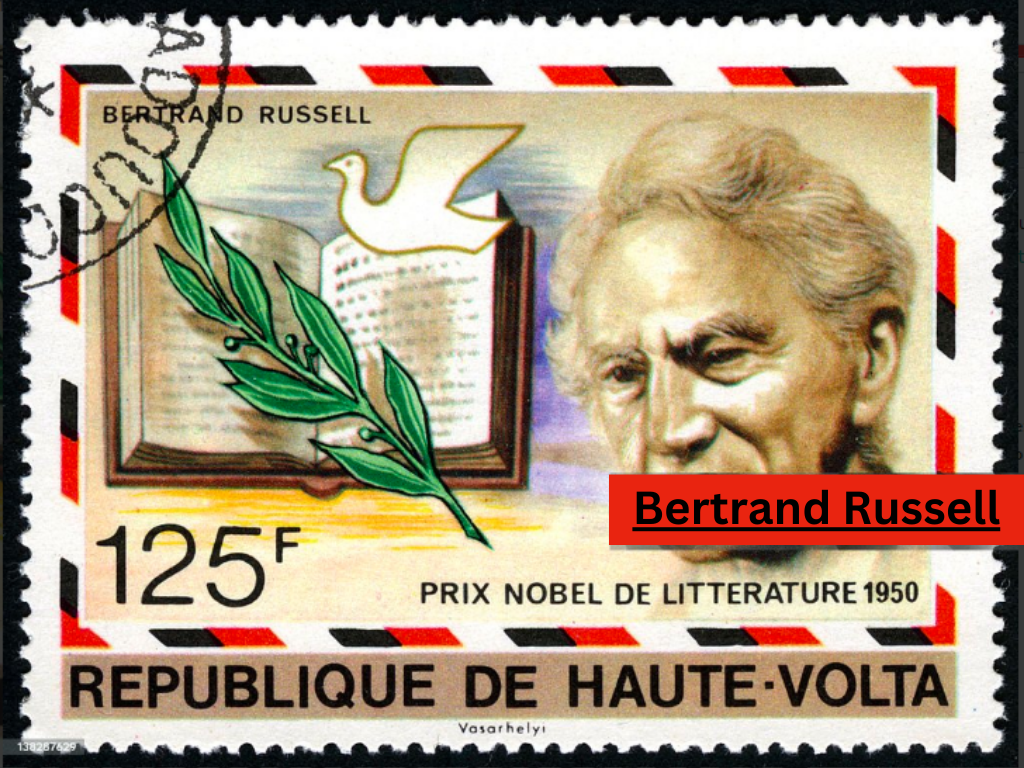Table of Contents
Introduction
His full name is Bertrand Arthur William Russell. He was born on 18 May 1872 in UK. Bertrand Russell was a British photographer, a logician, an essayist, and a social critic. He is best known for his work on philosophy in different subjects.
He was also famous for evangelical atheism for his contribution to technical philosophy as well. He was a 20th-century philosopher. He works on more than 15 subjects including mathematics, metaphysics, ethics, religion, and many more.
Early life and schooling
Bertrand Russell was alone in his childhood. He lost his mother and his sister as well when he was two years old. After 18-19 months, his father also passed away. He and his brother were cared by their paternal grandfather but their grandfather also died when he was only six years old.
He has education from Trinity College, Cambridge, the London School of Economics, and the University of Chicago.
Awards
Bertrand Russell was awarded the Nobel Prize in Literature in 1957. He was also awarded different other awards such as
- De Morgan Medal(1932)
- Sylvester Medal(1934)
- Jerusalem Prize (1963).
Bertrand Russell‘s famous books
Bertrand Russell wrote many books in his life. Some of his famous writings are:
- Why I’m not Christian
- The problems with philosophy
- Introduction to Mathematical Philosophy
- The analysis of Mind.
These were some of the notable works that made him famous.
Famous Questions
He was talking about different philosophies and asking different questions. He listed a set of different questions related to philosophical inquiries including religious as well. His famous questions were
- “Do we survive death in any sense, and if so, do we survive for a time or forever? “. This was related to religious beliefs.
- “Has the universe a purpose? Or is it driven by blind necessity? Or is it mere chaos and jumble, in which the natural laws that we think we find are only a fantasy generated by our own love of order?”
- “Can mind dominating matter, or does matter completely dominate the mind, or has each, perhaps, a certain limited independence?”
Famous Works on different philosophies
His most of notable works on different philosophies are as follows:
- Philosophy of Language
Bertrand Russell works on language was that he works on how the language is used or how we use the language. He discusses language as the central part of philosophy. Because language is the means of communication, and he discusses how to use language to communicate.
He with Moore, argued that clarity of expression is a virtue of using language. More ever on his philosophy of language, he describes the
- Nature of Language
- Relation of languages with one another
- Language users and the world.
Investigation may include inquiry into the nature of meaning, intentionally, to the references, the constitution of sentences, and many other things.
Ludwig Wittgenstein, Gilbert Ryle, J. L. Austin, and P. F. Strawson were the writers and philosophers who were influenced by him and used the style and techniques originally developed by Bertrand Russell.
- Philosophy of Science
Bertrand Russell thought that his approach and explanation of philosophy were better than that of other philosophical conclusions. He thought that science is the way of systematic process in which one comes to a conclusion with the proper method.
The same will be used for philosophy when one says some philosophical words, he or she must give the reason for it. He believed that both science and philosophy used to understand reality not to make predictions and confuse the readers. But to make them understand with proof.
- Philosophy of Religion
According to Russell, religion is really and largely harmful to people. He believed that religion and the religious outlook implement fears and dependency, cause oppression, are responsible for misery, and somehow are responsible for much of the wars in the world.
He was saying how a person can fit himself in one religion because some of the answer to some questions was that one would consider himself Atheist and by answering other, one was thought to be Agnostic.
During one of his speeches in 1949, he asked a question “Am I an atheist or Agnostic? “
After that, he explained his difficulty over religion.
Bertrand Russell answered that question that way that he said that if I were answering that particular question to a purely philosophic audience then I would consider myself an agnostic because there is a conclusive argument by which one can prove that there is not a God but if I’m speaking to an ordinary person than I may be an atheist because when I say that I cannot prove that there is not a God, I will also add that I cannot prove that there is not the Homeric gods.
Similarly, in his biography, he said that I’m for sure and I am convinced that there is no life after death but I still believe in God existence.
But then at the age of 18, he went to Cambridge, where he studied Mil’s autobiography, where he wrote a sentence that was actually the sentence his father taught him “Who made me? “Which immediately leads to the question “Who made God? “
- Philosophy of Mathematics
Bertrand Russell has done great work in mathematics. He wrote his first book in mathematics Essay on the Foundation of Geometry was published in 1897 which heavily influenced Immanuel Kant. He discusses logicism in detail in his writing The Principles of Mathematics in 1930.
